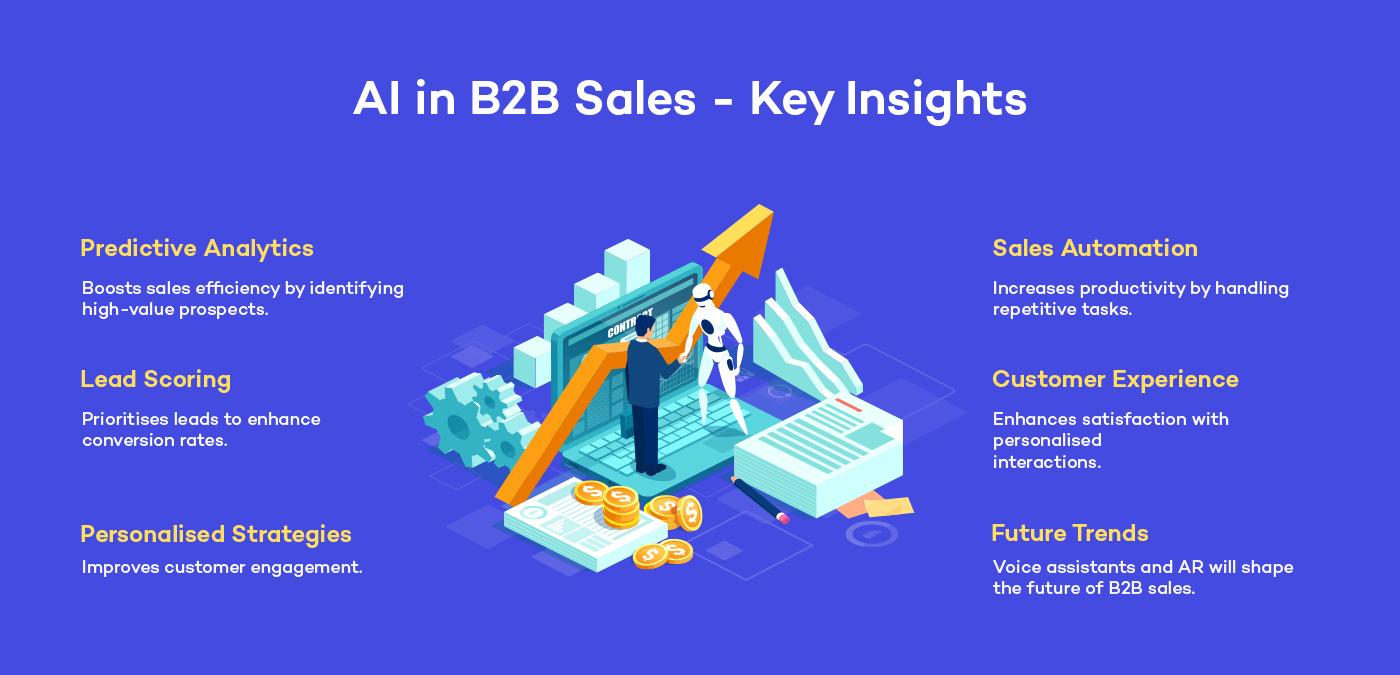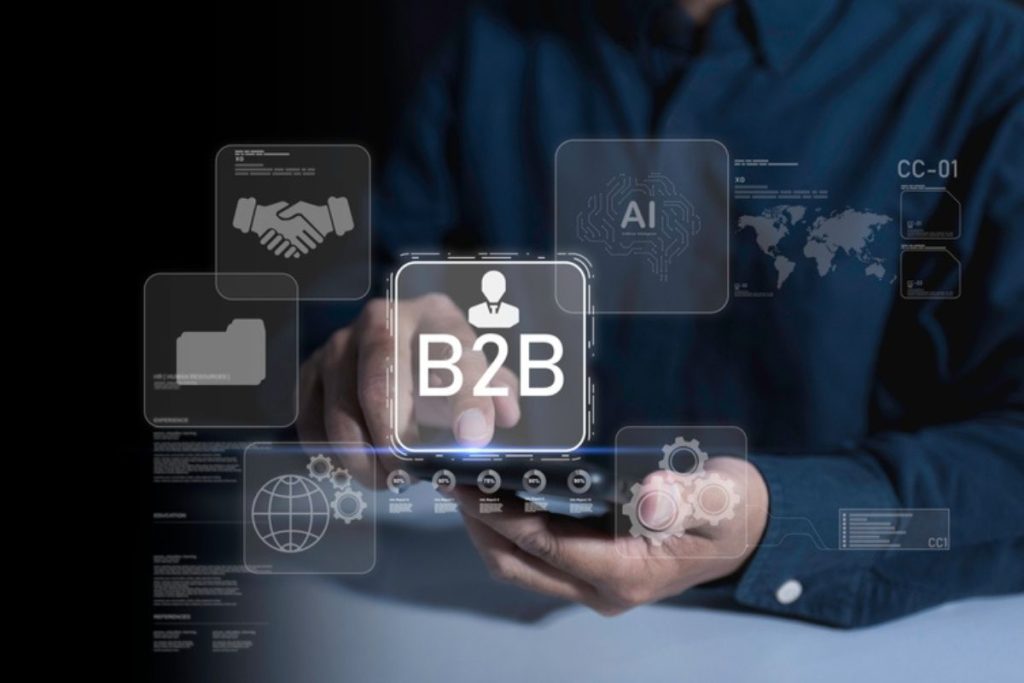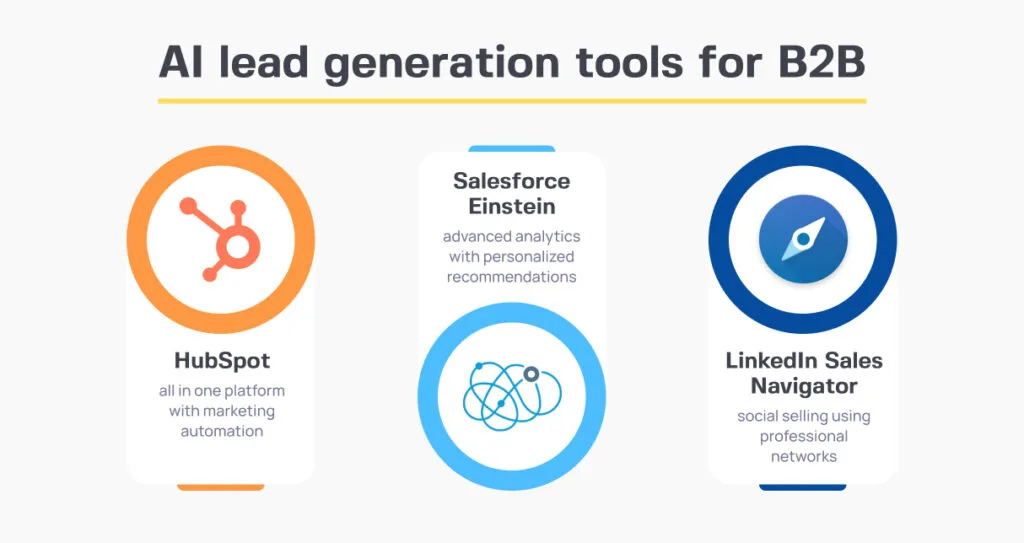Open Performance and Growth With AI Automation for B2B Companies
AI automation is transforming the landscape for B2B business. It reduces and enhances operations dependence on human intervention. This shift permits services to make quicker, data-driven decisions. As companies explore which refines to automate, they should also consider the right devices to carry out. However, obstacles remain in taking on AI modern technology. AI Automation For B2B. The implications of these adjustments can form the future of numerous companies in ways yet to be totally recognized
Comprehending AI Automation in the B2B Context
As companies increasingly seek efficiency, understanding AI automation in the B2B context comes to be crucial. AI automation entails utilizing advanced modern technologies to simplify operations, reduce human treatment, and improve decision-making procedures. In the B2B landscape, this can manifest in various kinds, such as automating client solution communications, managing supply chain logistics, or maximizing advertising and marketing campaigns. Firms can take advantage of AI to analyze substantial datasets quickly, allowing them to identify patterns and insights that notify strategic choices. AI systems can integrate effortlessly with existing technologies, providing a natural platform for handling organization functions. This understanding lays the groundwork for companies to discover how AI can change their procedures, improve efficiency, and inevitably foster lasting development in an open market.
Secret Advantages of Implementing AI Automation

Identifying Procedures Ideal for Automation

Choosing the Right AI Devices for Your Business
When B2B business consider automating their processes, picking the right AI tools comes to be vital for accomplishing desired results. Business need to start by evaluating their special needs and purposes, guaranteeing positioning with business objectives (Growth Systems For B2B). Reviewing the combination, adaptability, and scalability capabilities of prospective devices is vital, as these variables identify long-lasting performance. Organizations should likewise take into consideration user-friendliness and the level of support offered by suppliers, as these components can affect effective execution. On top of that, examining consumer testimonials and study can supply understandings right into how particular AI services do in real-world scenarios. By carefully picking AI tools that fit their operational requirements, B2B business can improve efficiency and drive growth while reducing potential interruptions
Getting Rid Of Obstacles in AI Adoption
B2B companies typically come across substantial difficulties in embracing AI innovations, especially problems associated with information high quality and resistance to alter administration. Poor data quality can prevent the efficiency of AI systems, while staff member hesitation to welcome brand-new processes can stall application initiatives - Growth Systems For B2B. Attending to these difficulties is vital for successful AI integration and optimizing its possible benefits
Data Top Quality Issues
Assuring high data quality is essential for the effective fostering of AI innovations in business-to-business environments. Imprecise, insufficient, or outdated information can significantly prevent AI efforts, resulting in wrong understandings and poor decision-making. Firms typically encounter difficulties such as data silos, variances across various sources, and an absence of standard data layouts. To conquer these concerns, organizations have to invest in information cleansing, integration, and administration procedures. Carrying out durable data management practices ensures that the details fed into AI systems is reliable and appropriate. Moreover, cultivating a culture of data top quality awareness among staff members can enhance information precision in time. By resolving information quality worries, B2B firms can release the full capacity of AI automation, driving performance and growth.
Change Administration Resistance

Determining the Impact of AI Automation
Measuring the influence of AI automation in B2B business requires a clear understanding of vital efficiency indications (KPIs) that line up with company purposes. Efficient data evaluation methods are important for translating the results, while robust ROI assessment approaches assist identify the monetary advantages of automation initiatives. Together, these elements offer a comprehensive framework for evaluating AI's contributions to business success.
Key Performance Indicators
Key performance indicators (KPIs) offer as vital tools for B2B firms to examine the efficiency of AI automation initiatives. By developing clear metrics, organizations can gauge enhancements in operational effectiveness, expense decrease, and revenue growth directly attributable to automation. Usual KPIs consist of cycle time reduction, error rates, client complete satisfaction ratings, and employee productivity degrees. These indicators give insights right into exactly how AI systems are optimizing processes and enhancing total efficiency. Additionally, tracking KPIs allows business to determine areas for more enhancement and to align AI automation initiatives with critical business objectives. Eventually, a well-defined framework of KPIs guarantees that B2B firms can quantitatively evaluate the influence of AI automation on their operations and drive constant growth.
Information Evaluation Strategies
Reliable information analysis methods play a vital function in reviewing the effect of AI automation within B2B business. By using statistical techniques, companies can identify fads and patterns in operational information, allowing them to evaluate the effectiveness obtains achieved through automation. Strategies such as regression evaluation and time series forecasting provide understandings into just how AI-driven processes affect efficiency and decision-making. Additionally, information visualization tools can efficiently communicate searchings for to stakeholders, facilitating educated strategic decisions. Maker knowing formulas can even more boost analysis by predicting future end results based on historical data, using workable insights. Eventually, these strategies make it possible for B2B firms to gauge success and optimize their AI automation efforts, ensuring alignment with company purposes and improving general performance.
ROI Analysis Techniques
Examining the roi (ROI) of AI automation is vital for B2B firms seeking to recognize the monetary effects of their technological initiatives. Business can employ numerous ROI evaluation methods to assess the effectiveness of AI executions - AI Automation For B2B. One reliable method includes determining price savings by comparing functional costs prior to and after automation (Growth Systems For B2B). Furthermore, determining productivity renovations through key efficiency indicators (KPIs) helps evaluate the advantages of AI. Customer satisfaction metrics can also provide insights into the influence of automation on solution quality. To ensure a thorough assessment, companies ought to consider both straight abstract advantages and monetary returns, such as improved decision-making capacities and competitive advantage. This complex assessment allows B2B companies to make enlightened choices pertaining to future investments in AI technology
Future Patterns in AI Automation for B2B Companies
What advancements lie in advance for AI automation in B2B companies? Arising resource patterns show a considerable shift in the direction of boosted information analytics abilities, making it possible for organizations to make more enlightened decisions. Anticipating analytics will become increasingly essential, allowing firms to anticipate market adjustments and customer requirements. Additionally, the assimilation of AI with Internet of Things (IoT) technology is anticipated to improve procedures by giving real-time understandings and automation of processes. Business will also concentrate on enhancing consumer experiences with personalized advertising and marketing driven by AI formulas. Improvements in all-natural language handling will certainly help with much better communication between companies and customers. As these fads evolve, B2B business should adapt to leverage AI automation properly, ensuring continual development and competitive benefit.
Frequently Asked Concerns
What Industries Benefit one of the most From AI Automation in B2B?
Manufacturing, financing, health care, and logistics sectors profit the most from AI automation in B2B. These industries utilize AI to maximize procedures, boost decision-making, and enhance general operational efficiency, driving significant development and development.
How Does AI Automation Effect Worker Duties and Responsibilities?
AI automation reshapes employee roles and obligations by simplifying repetitive jobs, allowing workers to focus on calculated efforts. This shift fosters skill growth, improves performance, and encourages cooperation, inevitably driving business growth and innovation.
What Prevail False Impressions Concerning AI Automation in B2B?
Common misconceptions about AI automation in B2B include anxieties of work loss, ideas that AI can fully replace human judgment, and taking too lightly the importance of cooperation between AI systems and employees for excellent results.
How Can Companies Ensure Data Personal Privacy With AI Automation?
Companies can guarantee information privacy with AI automation by implementing durable encryption protocols, sticking to regulative compliance, carrying out regular audits, and training staff members on information taking care of methods to alleviate dangers and secure sensitive details.
What Are the Expenses Related To Executing AI Automation?
The costs linked with implementing AI automation consist of software acquisition, framework upgrades, training personnel, continuous upkeep, and possible downtime throughout integration. In addition, companies might incur costs connected to information security and compliance procedures.
Gauging the impact of AI automation in B2B companies needs a clear understanding of key efficiency signs (KPIs) that straighten with organization goals. Key performance signs (KPIs) serve as essential devices for B2B companies to examine the effectiveness of AI automation campaigns. Reliable information evaluation strategies play an important function in evaluating the influence of AI automation within B2B business. Reviewing the return on financial investment (ROI) of AI automation is vital for B2B companies looking for to recognize the financial effects of their technological campaigns. What developments lie in advance for AI automation in B2B business?